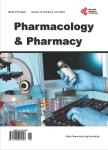Cardiac Toxicity of Azole Antifungals
Cardiac Toxicity of Azole Antifungals作者机构:Department of Biochemistry Jackson USA. Department of Pathology Jackson USA Department of Pharmacology and Toxicology Jackson USA University of Mississippi Schools of Medicine & Pharmacy Jackson USA
出 版 物:《Pharmacology & Pharmacy》 (药理与制药(英文))
年 卷 期:2013年第4卷第3期
页 面:362-368页
学科分类:1002[医学-临床医学] 100201[医学-内科学(含:心血管病、血液病、呼吸系病、消化系病、内分泌与代谢病、肾病、风湿病、传染病)] 10[医学]
主 题:Mycology Azole Antifungals Itraconazole Animal Model
摘 要:Cardiac toxicity is an uncommon side effect of anti-fungal therapy. Until the recent reports of itraconazole (ITZ) associated cardiac failure, amphotericin was the antifungal most frequently reported with arrhythmias. We evaluated the cardiac effect of azole antifungals, specifically ITZ, and possible mechanisms of toxicity. Ex vivo live-heart studies were performed utilizing Sprague Dawley rats. Short exposure (5 minutes), random crossover, dose ranging studies were performed with each pharmacologic agent. ITZ focused trials also included dose ranging utilizing a non-crossover design. The only azole found to have significant toxicity was ITZ. At ITZ ~ ED25 (2 - 2.5 ug/mL) exposures, contractility decreased by 22.2% ± 15.7% and amplitude of left ventricular pressure decreased by 11% ± 0.17%. Electron micrograph and alterations in mitochondrial respiration suggest mitochondrial toxicity as an underlying mechanism. In conclusion, ITZ was associated with reductions in contractility, possibly secondary to mitochondrial dysfunction and dilated cardiomyopathy.



